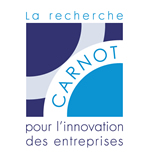Energy
The energy transition is a major societal challenge and needs to be underpinned by the new technologies needed to enhance the efficiency, ecological footprint and ease of use of new energies. To address these new energy and environmental challenges, Carnot institutes — especially those focused on energy — strive to strengthen the industrial component in infrastructure design and production.
HEAT STORAGE
An experimental tool with a dual numerical/experimental approach for developing a low temperature waste heat storage system. The aim is to acquire the data necessary for designing and scaling pilot systems for industrial scale operations. This approach is part of the energy efficiency drive focused on renewable energy and waste heat recovery.
KIWEE
This concept is the fruit of a reflection on the mobility requirements of users in peri-urban areas, currently a captive space for the private car. The recharging and control system has been developed and patented entirely by Carnot Energies du futur Institute (CEA-Liten).
Floating structure for offshore wind farms
Carnot IFPEN Ressources Energétiques and its partner, SBM offshore, specialist in offshore energy markets, is partnering the industrial development of offshore wind energy with a breakthrough floating support solution. Once a demonstration phase has been completed, preparation for the industrial phase will begin, with one overriding challenge: cutting costs, which is key to the competitiveness of the floating wind farm sector.
LAYER®
Energy self-sufficiency in connected objects is a key issue for developing the Internet of Objects. This is why the team of FUN-PV – common to IM2NP (Carnot STAR Institute), CINAM and Dracula Technologies (DT) – is working to design and optimise organic photovoltaic cells and modules obtained by digital printing, and leveraging their respective expertise in organic electronics
REFHYB
Vapour-compression air-conditioning systems can effectively manage temperature but have certain drawbacks when it comes to controlling indoor humidity. Hybrid systems based on liquid desiccants are energy-efficient refrigeration systems. Dessication can be used for dehumidification before the air supply is cooled, thus separating humidity control from temperature control.
WAVYX
If you want to heat or cool a fluid efficiently, you need to have effective heat exchange with the solid wall with which the fluid is in contact. If the flow does not spread out all along the wall, your system will be much less efficient. WAVYX uses the complex trajectories generated in a sine-helical shaped channel to achieve high heat transfer. A good shake-up provides the basis for effective transfer!
Towards mass production of carbon-free hydrogen
Production of carbon-free hydrogen - design of a pre-industrial demonstrator: electrolysis cell stacking. A unique core technology for producing high-efficiency, low-cost hydrogen using high temperature electrolysis (HTE), with the added advantage of being reversible and therefore operable in solid oxide fuel cell mode (SOFC), generating both electricity and heat.
THEMIS
Cerema’s Clermont-Ferrand-based lab has designed a real-time instrumentation device that analyses the “energy behaviour” of buildings to optimise their consumption. It uses a number of open source technologies and is known as THEMIS (THermic and Energetic MonItoring System). THEMIS is being developed as part of an experimental study conducted by Cerema on behalf of the social landlord, Allier Habitat.

